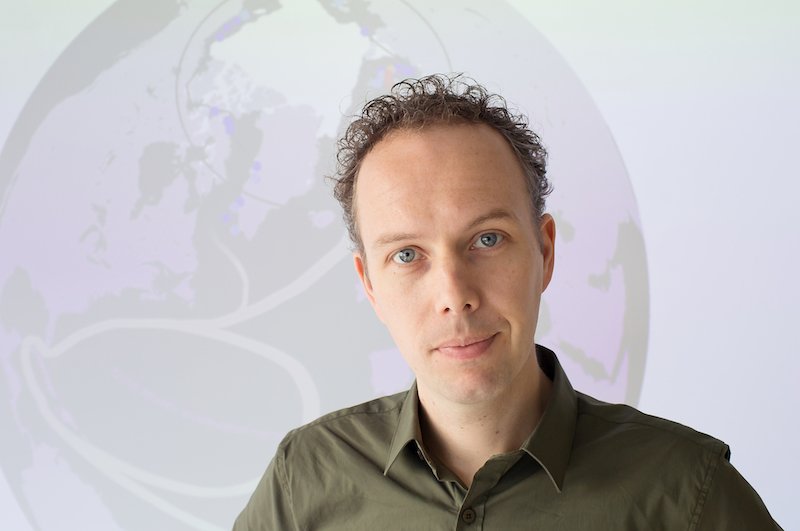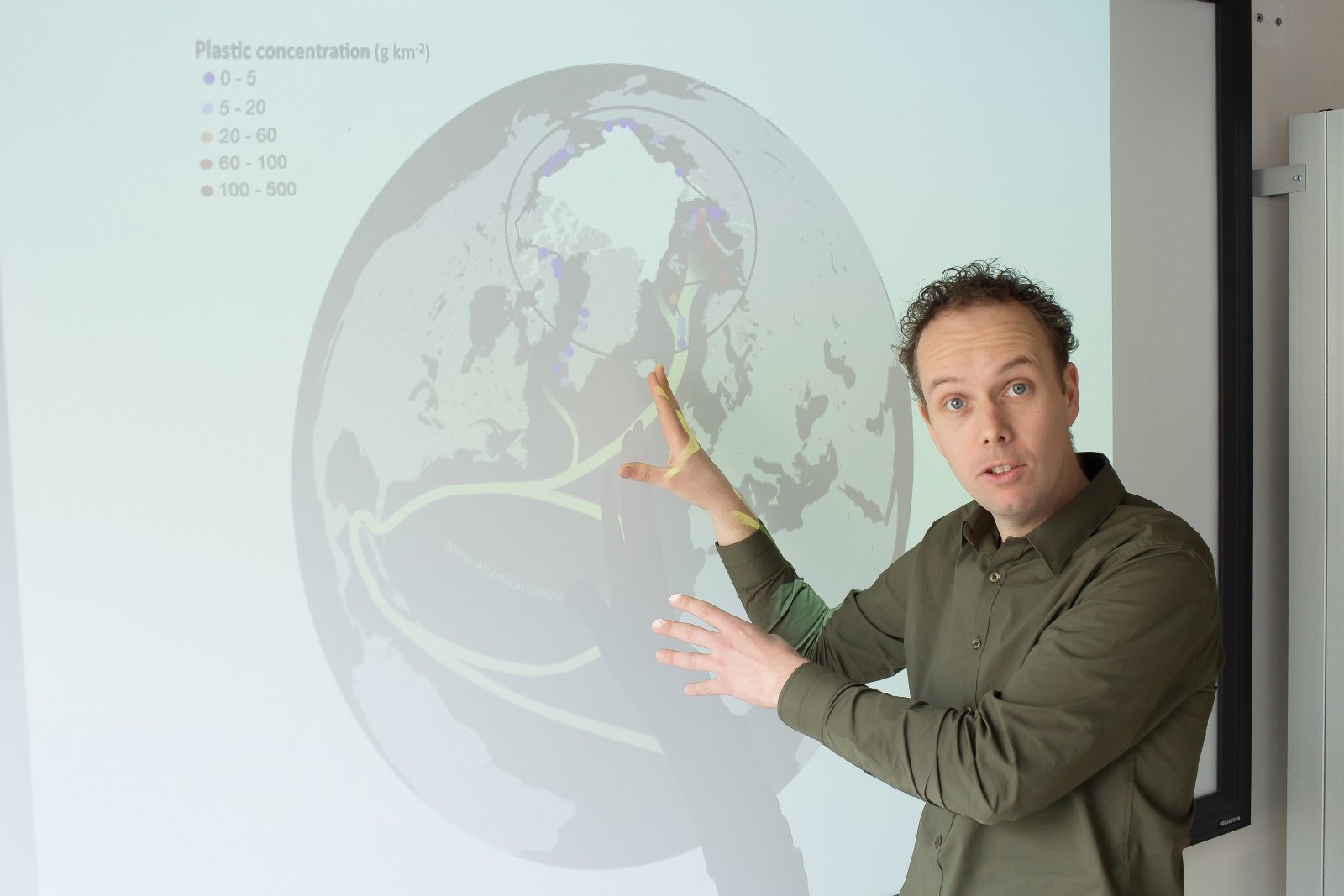"Our code has been developed to be used by anyone in the world"
What does Research Data Management mean in everyday practice? In this series of interviews by RDM Support, researchers share their experiences on various aspects of research data management. In this interview: Erik van Sebille, expert in the field of plastic soup and ocean currents and winner of the UU Public Prize 2018, speaks about making a community code.
"250 million kilos of plastic floats on the surface of the ocean but every year twenty times as much plastic is dumped into the ocean. Therefore, the majority of plastic in the ocean is not on the ocean surface. Since this plastic has yet to be found, it has been aptly called "dark plastic". To solve the sea plastic problem it is crucial to locate all the plastic in the sea. That is why, within the TOPIOS research project, we are working on a three-dimensional map that would show where the plastic is in the ocean. This map runs on the OceanParcels software, which we have developed ourselves, and keeps getting better thanks to help from the scientific community.”
To build trust you have to give people access to the development of the code

Inclusive development
The OceanParcels tool consists of a software code that can be used in Python. This code can be downloaded by anyone and has developed into a real community code. Oceanographer Erik van Sebille explains: “We do not intend for this code to solely be used by our own research group. Our code has been developed to be used by anyone in the world. To achieve that, you must focus on two aspects. One side is advertising your code, going to conferences, networking and writing articles. The other side, the technical side, is making the development of the code inclusive. You cannot create a code, present it to the world, and expect it to be used. Such an approach lacks the concept of co-ownership. To build trust with the community, you must first give people access to the development of the code. That is what we call inclusive development. I now receive an email almost every week from someone who has downloaded the code and has a question or finds a bug.”
All questions from users of the code are almost too much for me alone
Bottlenecks
There is no set recipe for developing and implementing a community code. It is a journey of trial and error. "All questions from users are almost too much for me to handle alone," Erik explains, "that's why we are now setting up a chat room where the community can meet and help each other." But there are more obstacles. “It is extremely difficult to get funding for the development of such a code. No grants can be obtained for a community code like this. That is why such a code must be developed within a funded research project. And not just any funded research, a very large and well-funded research project to be precise."
According to Erik, research support is also lagging behind in some areas. “I set up OceanParcels when I was still working at Imperial College London, and they helped me choose a license. However, Utrecht University does not have a standard policy for sharing software code yet.” Having a suitable license is important for ensuring free reuse and modification of the software.
The storage of the research data is also a bottleneck. "Our problem is that we have a huge amount of data, we are easily at one hundred terabytes." Utrecht University has its own data repository, called YODA, where these quantities can be stored. However, that does not solve all of Erik's problems. "YODA could not be linked to the High Performance Computing systems that we need." ITS has now made this possible. Information Architect Maarten Hoogerwerf, part of the RDM Support network, says: “Obviously, Erik's research does not stand still and he has found another solution for the time being. However, Erik’s issue has pushed us to create a solution for future researchers.”
I have the best job in the world

Social contract
Erik received the UU Public Prize in January this year for his media appearance. He has been in the news regularly in the field of plastic soup. Erik is also very active in the field of science communication. He talks passionately about what motivates him: “I invest a lot in the social contract that exists between society and the university world. I follow my own research interests using tax money. I have the best job in the world, and I determine my own agenda and research. I am able to do that because society thinks it's a good idea that I do this research. That's why I think it's important to show what I'm doing here. And to show why it is a good idea to give money to science."
The UU Public Prize consists of funds to be used to create a video about the winning researcher's work. “I will use this prize to make vlogs about our research for VMBO students. In these vlogs I want to show the importance of what I do, and what they should do with this information. With my vlogs I want to motivate the students to vlog back. I want to create a platform where all these vlogs can be shared. The purpose of this is to get the students thinking, and to start a whole discussion.”
Reproducible Coding course
With OceanParcels as a source of inspiration, Research Data Management Support is now working on an introductory workshop called Reproducible Coding. This will be a one-day course given on a regular basis, starting on the fall (2019). In this workshop you will learn good coding habits so that your code can be easily used and interpreted by others.
More information
Do you want more information about sharing a code or about the services of Research Data Management Support? Or are you interested in the Reproducible coding workshop? Check out our website or contact us via info.rdm@uu.nl.

